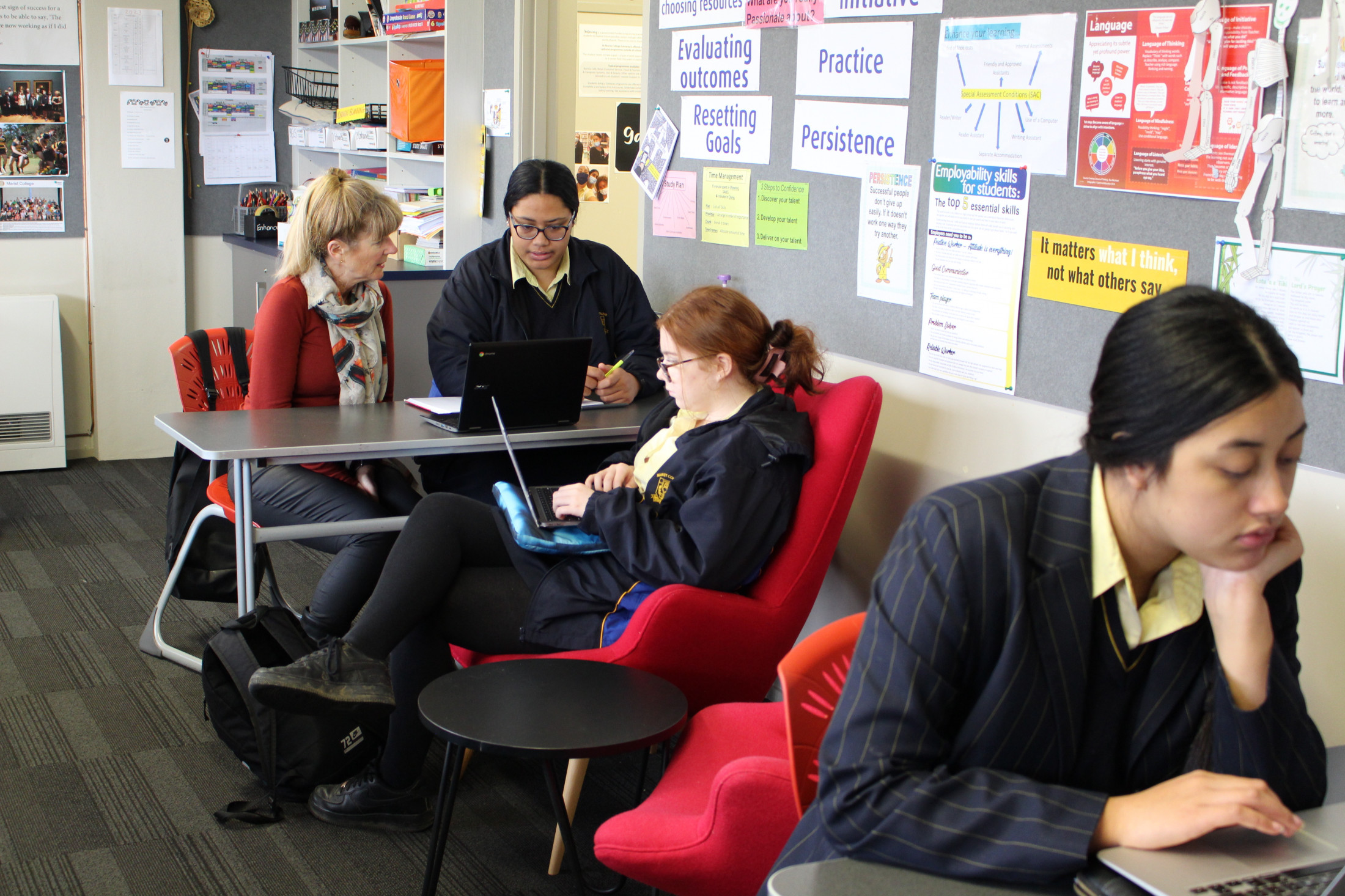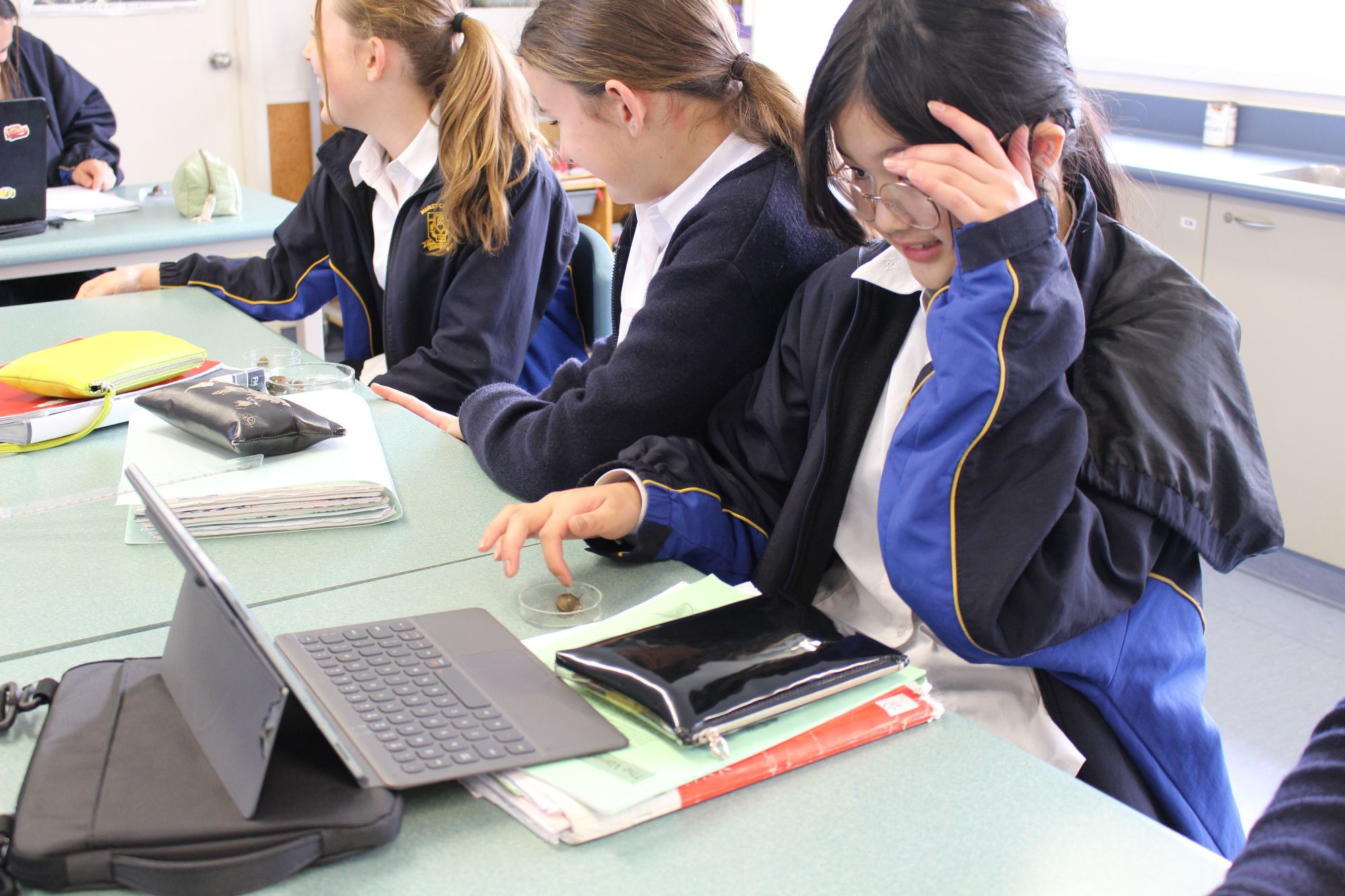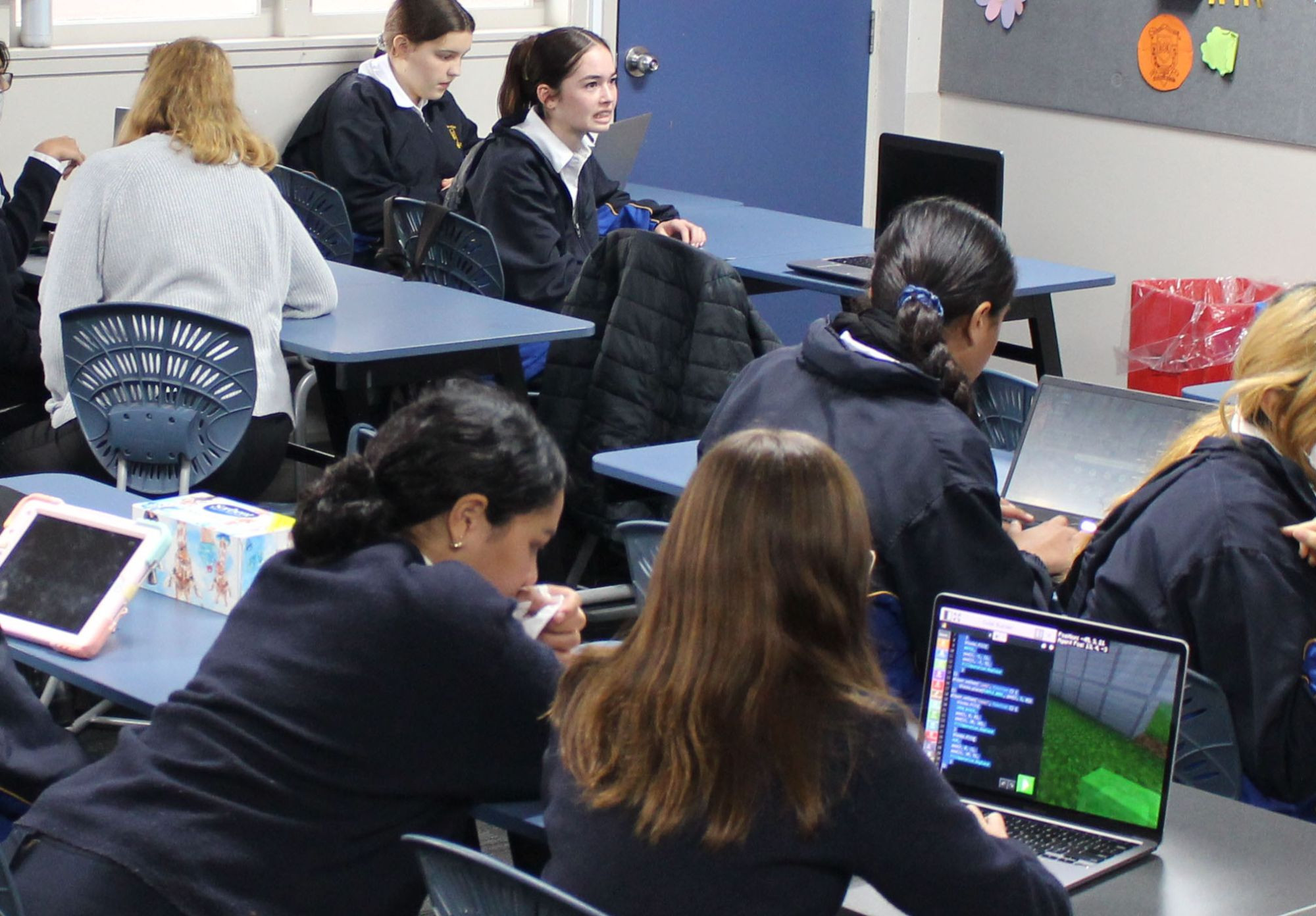- Digital devices are compulsory for all Year 7-13 students.
- Marist College recommends a Windows or Mac laptop not a Chromebook or Tablet.
- Below is a list of specifications for purchasing a device. If your daughter currently has a device that meets the below specification, then there is no need to purchase a new one.
- Mobile phones are digital devices, but they are not acceptable as a learning device. They are not to be used, seen, or heard while on school property.
Recommended | Not Recommended |
| Operating System - Windows 10/11 or Mac OS | Chrome Books and Apple/Android Tablets |
| Hard Drive 64GB+ (128GB+ recommended for Seniors) | Less than 64GB Hard Disk |
| RAM 4GB+ (8GB+ recommended for Seniors) | Less than 4GB RAM |
| Battery Life 6 hours + (there are no charging facilities at school) |


